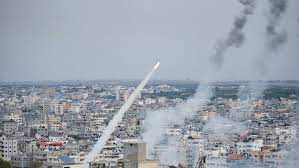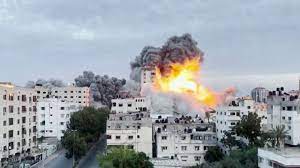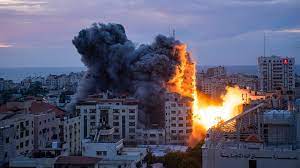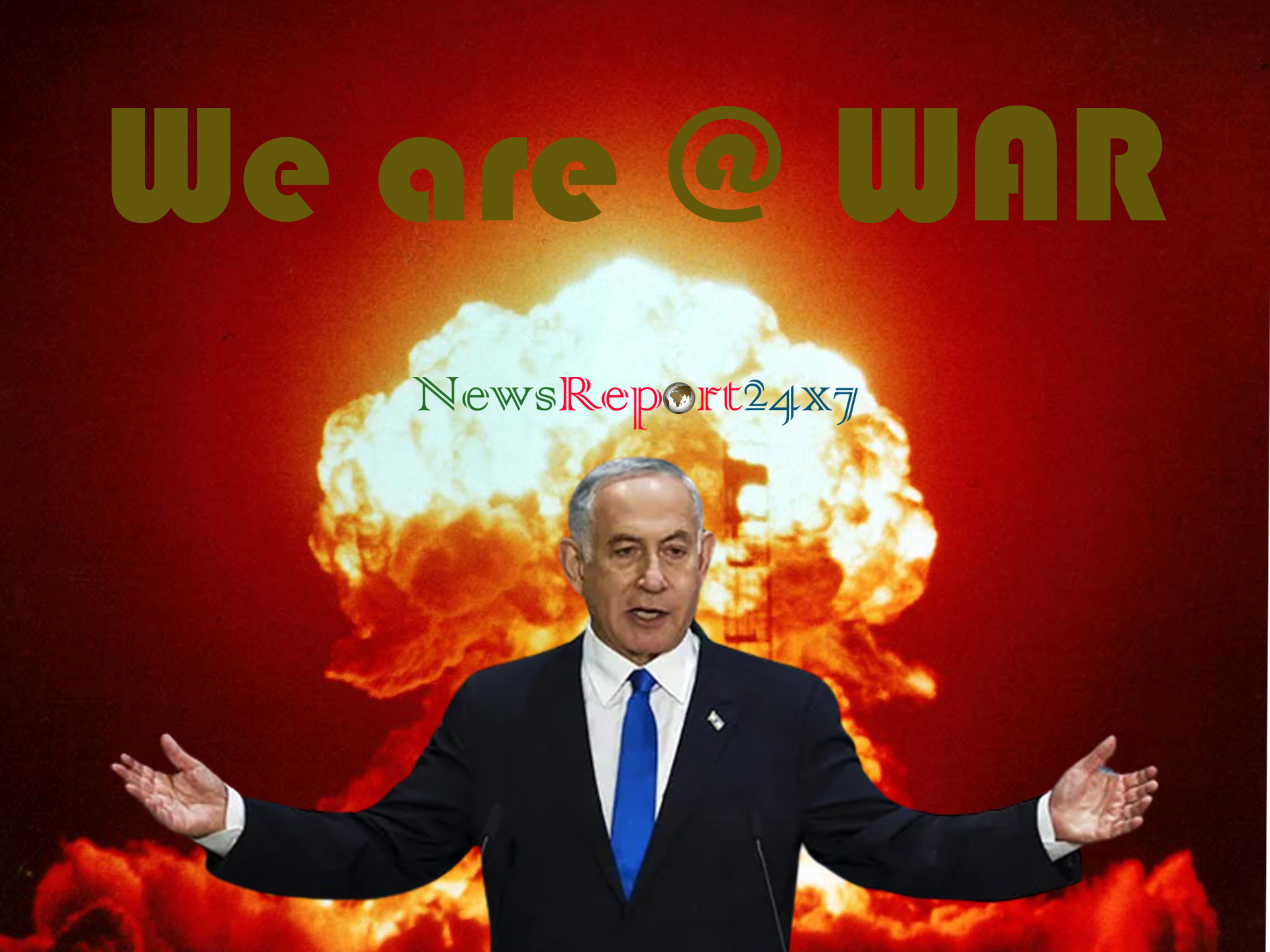Israel Palestine conflict just took an ugly turn yesterday with Hamas, the designated terrorist group shooting thousands of missiles into Israel.
Table of Contents
ToggleOn 7 October 2023, the militant groups from the Gaza Strip launched a large-scale armed attack. It broke through the Gaza–Israel barrier. Once entered, they began to descend into Israeli cities massacring innocent people and attacking the military and civilians. It is rumored that more than 1,000 people have been killed in total.
Israel began its retaliating and the Iron Dome was being operated.
Israel Palestine war shoots up



Promising the darkest time for Hamas, the Israel Prime Minister Benjamin Netanyahu, said, “This is the end of Hamas.” The conflict has come to be known as Israel Palestinian War 2023.
Hamas group, meanwhile claimed it was taking revenge for the recent blatant actions by Israel.
In short, the Israel Palestine conflict just shot up.
Israel gets the support of World Leaders.
World Leaders were quick to support Israel, in the Israel Palestine issue though earlier there were small different tones but with the attack, everyone had no other way but to stand with Israel.

India stands up in Israel-Palestinian conflict
Surprisingly, India took a stand in the Israel Palestine conflict and declared that it stood with Israel and had the freedom to protect itself. This shows the change in policy from the Congress era, where India was always neutral fearing the displeasure of the Indian Muslim vote.
Narendra Modi`s strong policies have turned India from a meek nation to a powerful roaring Lion. His foreign policy has earned him a lot of friends and respect.

Reasons behind the conflict of Israel-Palestinian
The Israel-Palestinian conflict has been ongoing for decades and has multiple complex causes. One of the main issues at the heart of the conflict is the dispute over land and borders. Both Israelis and Palestinians claim the same land as their homeland, which has led to disputes over territory.
The Israel-Palestinian conflict is also fueled by religious and cultural differences, with both sides having deep historical and religious ties to the land. Additionally, political factors such as leadership and governance also play a role in the ongoing conflict.
10 main reasons for Israel-Palestinian conflict
ten reasons behind the Israel-Palestinian conflict:
- Dispute over land and borders
- Religious and cultural differences
Political factors, including leadership and governance - The displacement of Palestinians during the creation of Israel in 1948
- The ongoing Israeli occupation of the West Bank and Gaza Strip
- The building of Israeli settlements in the West Bank
- The blockade of Gaza by Israel and Egypt
- Palestinian attacks on Israel, including suicide bombings and rocket attacks
- Israeli military operations in Palestinian territories
- The lack of progress in peace negotiations and,
- Failure to establish a Palestinian state

Story behind Israe Palestine War
The Israel-Palestine conflict is a complex and deeply rooted issue that has spanned decades. It revolves around the competing claims and aspirations of Israelis and Palestinians over the same land.
The conflict traces its origins back to the late 19th century with the rise of Zionism, a movement seeking to establish a Jewish homeland in historic Palestine. In 1947, the United Nations proposed a partition plan that would divide Palestine into separate Jewish and Arab states. While the Jewish community accepted the plan, Arab nations rejected it, leading to a war between the newly declared State of Israel and neighboring Arab states.
The war resulted in Israel gaining control over more territory than originally allocated by the UN, including East Jerusalem, the West Bank, and Gaza Strip. This displacement of Palestinians led to a significant refugee crisis and deep-seated resentment. Over the years, Israel has continued to expand settlements in these occupied territories, which has been a major point of contention.
The conflict has been marked by cycles of violence, including wars, uprisings, and acts of terrorism. Efforts to find a peaceful resolution have been elusive, with numerous peace talks and agreements failing to bring about a lasting solution. Key issues include the status of Jerusalem, the borders of a future Palestinian state, the right of return for Palestinian refugees, and security concerns for both sides.
The conflict has had profound humanitarian consequences. Palestinians have faced restrictions on their movement, limited access to resources, and a lack of self-determination. Israel, on the other hand, has faced security threats and the challenge of balancing its Jewish identity with democratic values.
International efforts to resolve the conflict have been ongoing, with various proposals put forward by the United States, the United Nations, and other mediators. However, deep-rooted mistrust and differing narratives continue to hinder progress.
Conclusion:
In conclusion, the Israel-Palestine conflict is a deeply entrenched struggle over land, identity, and self-determination. The competing claims and aspirations of Israelis and Palestinians have resulted in decades of violence and failed peace initiatives. Resolving this complex issue requires addressing historical grievances, recognizing the rights and aspirations of both sides, and finding a mutually acceptable solution that ensures security, justice, and dignity for all parties involved.
Comment below with your email id, if you want to know any more details on careers.
For an adventurous career – www.gmoffrolls.com
For more exciting Blogs: NewsReport24x7.com/blog




Hi
Good blog.